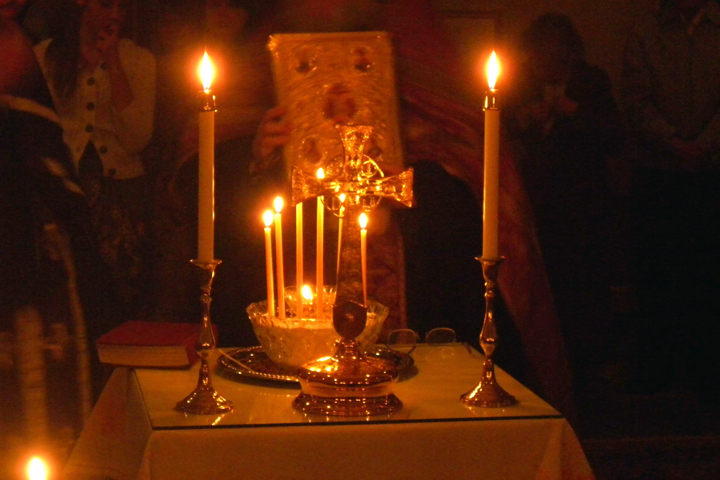Divine Healing Has its Price Tag
10 Νοεμβρίου 2011
We appeal to God for the healing of our souls and bodies only as a last resort. God’s healing is always a miraculous act, and we are afraid of facing the manifestation of the almighty power of God. Although the healing we receive from God is a gift, we also know that its implications are many and everlasting.
There is a price tag on divine healing, and the price is a complete change of life. It is indeed a serious price – for change does not come easily. For this reason, divine healing can only take place when it is really wanted. It also requires a total submission and a full commitment to the relationship of faith with God’s divine power.
In order to understand this process, we can look closely at the healing performed by our Lord, Jesus Christ at the pool called Bethesda by the Sheep Gate in Jerusalem. An angel of the Lord would come down at a certain time and stir the waters of the pool. Then, “whoever stepped in first, after the stirring of the water, was made well of whatever disease he had” (John 5:4).
At the pool, there was a man who had suffered from an infirmity for thirty-eight years. “When Jesus saw him lying there,” says the Gospel, “and knew that he already had been in that condition for a long time, He said to the him, ‘Do you want to be made well’ ” (complete, whole)?
At first, this question seemed superfluous to the sick man as suggested by his answer: “Sir, I have no man to put me into the pool when the water is stirred up, but while I am coming, another steps down before me.”
But the Lord’s question had a deeper meaning. The Lord asked the sick man if he really wanted to be made well and if he were ready to pay the price of the divine healing that the Lord was about to perform. Was he committed to the relationship that would be established by the divine intervention about to take place? Was he ready to submit totally to the will of God?
Divine healing would not only take away the man’s infirmity, but would also change his life forever. It would change his heart and his mind. It would also make him spiritually well. So, in other words, the Lord was asking the sick man, “Are you ready to be touched by God in this special way?”
When he agreed, Jesus commanded him, “Rise, take up your bed, and walk.”
The man obeyed the Lord, even though he knew it was the Sabbath day.
Those who saw him carrying his bed, reminded him, “It is the Sabbath day, and it is not lawful for you to carry your bed.” Showing his complete submission to the Lord, he answered them: “He who made me well said to me, ‘Take up your bed and walk.’ ”
After the healing, the Lord disappeared among the multitudes of people.
The Gospel says that, at this point, the healed man did not know who Jesus was. It was only after awhile that the Lord met him in the temple and said to him, “See, you have been made well. Sin no more, lest a worse thing will happen to you.”
First of all, in the healing process, the sick man obtained the forgiveness of his sins. Secondly, the healing that he accepted changed his life so much that he could not go back to his old ways of understanding or leading his life. In fact, it was as if the sick man was arraigned and placed on divine parole. “If you break your parole,” the Lord seemed to say, “you will not only go back to your old situation, but to an even worse one.”
Divine healing as a gift from God, still has a spiritual price. When we pay it, however, we help ourselves. It changes us more drastically then anything before has ever changed us.
It calls us to a new life, a renewed relationship with our fellow man, and a total submission to God. That’s why it often seems much easier to take a pill and go to bed, or to see a doctor and then complain about the bill.
Nonetheless, have courage my friends. Don’t be afraid to appeal to God’s healing and to accept His purifying power that changes everything within you. Divine healing erases our sinful past, makes well of our present and helps save our souls. We must also remember that His healing will place us on divine parole, and that we must sin no more.
This article was originally published by Lumina, Summer, 2000.
This article is posted here with direct permission from Fr. Cornel Todeasa and Lumina.




